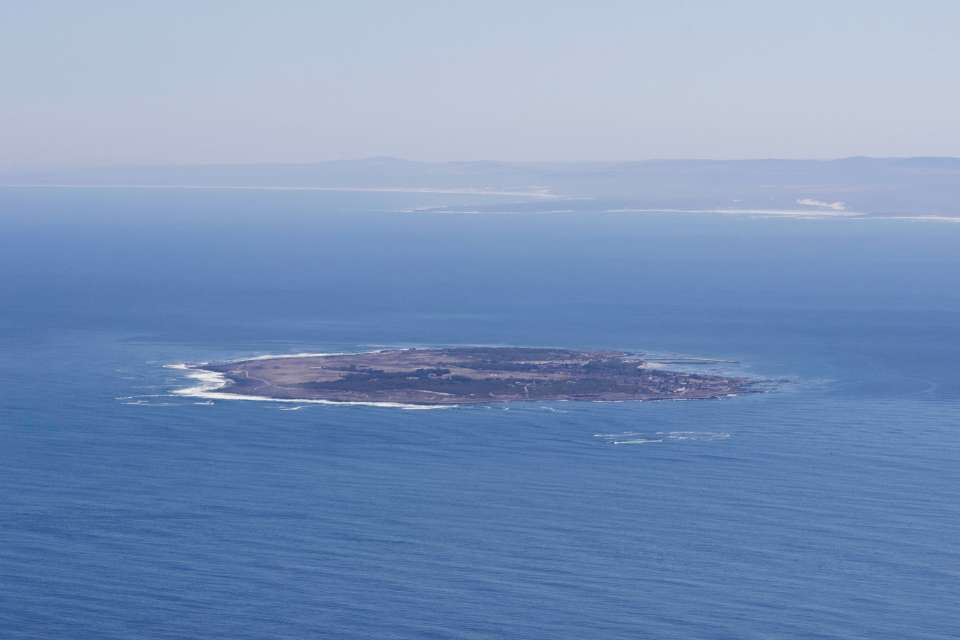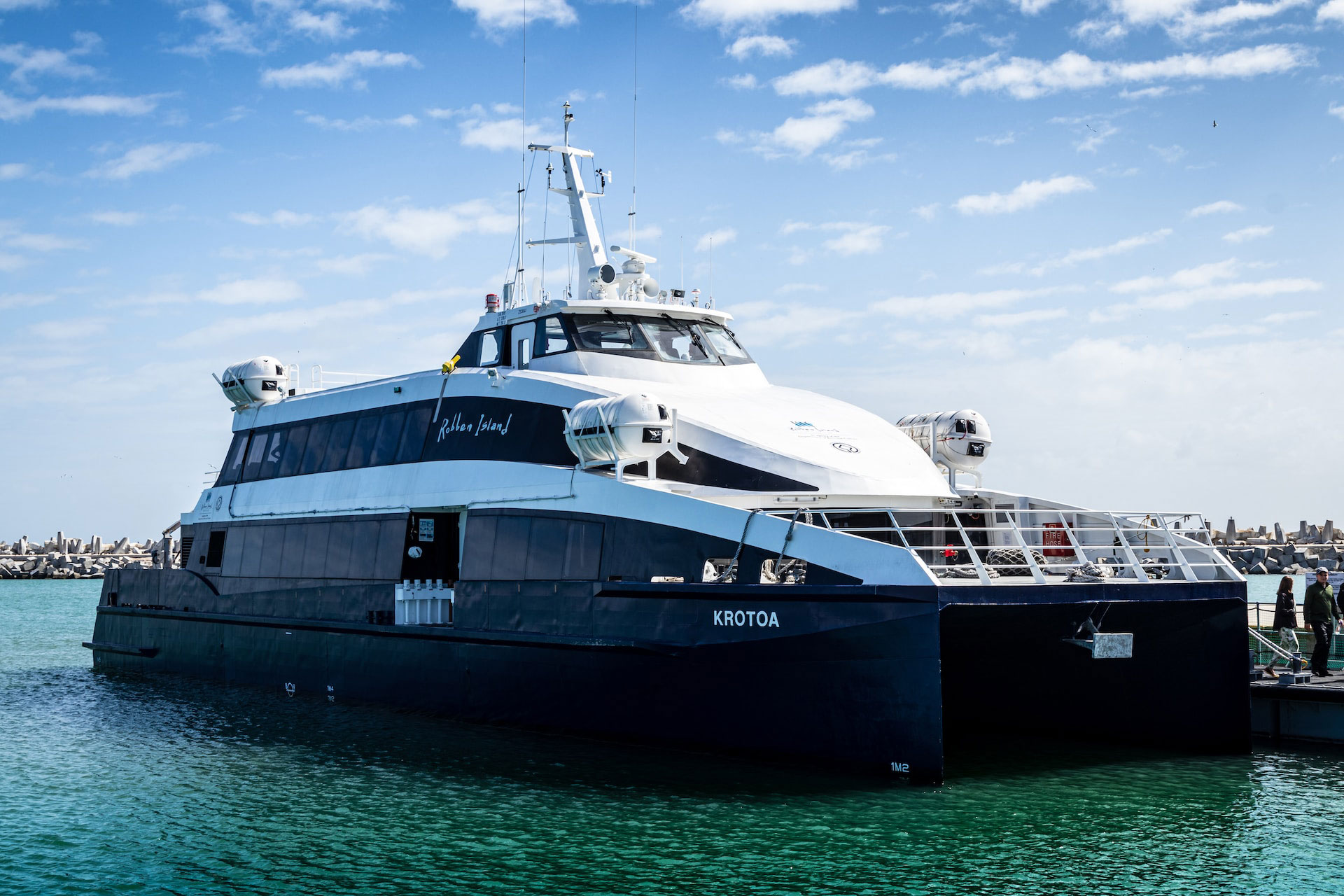When it comes to exploring the historical and political significance of South Africa, Robben Island is a must-visit destination. Located in Table Bay, this World Heritage Site is just a short distance away from Cape Town.
But just how far is Robben Island from Cape Town?
Robben Island is approximately 7.4 kilometers from the nearest land, making it within sight of Cape Town itself. This close proximity allows visitors to easily access the island and immerse themselves in its rich history. From the island, you also have the option to swim to nearby locations such as Blouberg Beach or Three Anchor Bay, or even take a scenic route around the entire island.
Nonetheless, the main swims between Robben Island and the mainland range from 7.4 kilometers to 11 kilometers, presenting a thrilling challenge for accomplished swimmers.
These swims are particularly demanding due to the cold water temperature, making them an achievement for those who are up for the task.
Key Takeaways:
- Robben Island is located approximately 7.4 kilometers from Cape Town
- Swimming between Robben Island and the mainland ranges from 7.4 kilometers to 11 kilometers
- The island offers various swim routes, including to nearby beaches or around the island
Visiting Robben Island on a Tour from Cape Town
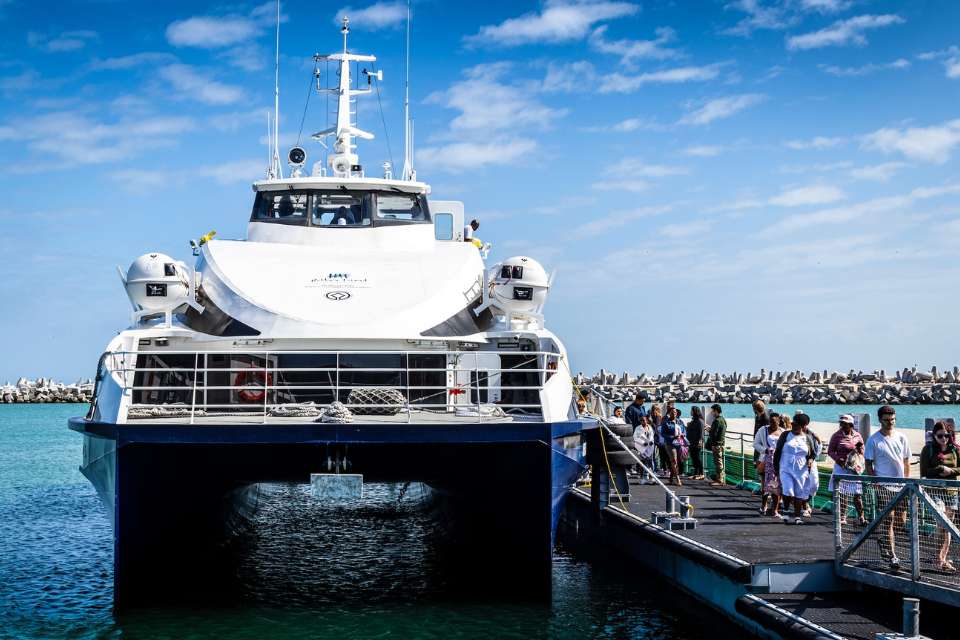
Visiting Robben Island is a must-do activity for tourists in Cape Town. To experience the historical significance and rich heritage of this World Heritage Site, you need to take an official tour. You can book your tour directly on the Robben Island website or through reputable providers like GetYourGuide.
The ferry ride from the Waterfront in Cape Town to Robben Island typically takes around 30-40 minutes, depending on sea conditions. It’s a scenic journey that offers beautiful views of Table Bay.
The ferry operates three times a day, with departures at 9am, 11am, and 3pm, giving you flexibility in planning your visit.
Once you arrive at Robben Island, the tour usually lasts around 3.5-4 hours. During this time, you’ll explore various historical sites guided by knowledgeable tour guides who provide valuable insights into the island’s history. Additionally, you may have the opportunity to hear firsthand accounts from ex-prisoners, offering a unique perspective on the struggles and triumphs associated with Robben Island.
To make the most of your visit, it is advisable to book your tour in advance, especially during peak season when availability may be limited.
Click here to book your tickets now.
Robben Island: Essential Information
If you’re planning a visit to Robben Island, it’s important to know some essential information to make the most of your experience.
Can I visit Robben Island independently?
No, visiting Robben Island can only be done through an official tour. Independent visits are not possible.
Where is Robben Island located?
Robben Island is located 11.6 kilometers from the mainland. It is situated in Table Bay and can only be reached by ferry from the V&A Waterfront in Cape Town.
How far in advance do I need to book ahead?
We recommend booking your tour in advance, especially during the peak season, as availability may be limited. This ensures that you secure your spot on the tour and prevents any disappointment.
Where does the ferry for Robben Island depart from?
The ferry for Robben Island departs from the Nelson Mandela Gateway at the V&A Waterfront in Cape Town. It is advisable to arrive at least 10-15 minutes before departure to allow for security checks and long queues.
The Experience on Robben Island
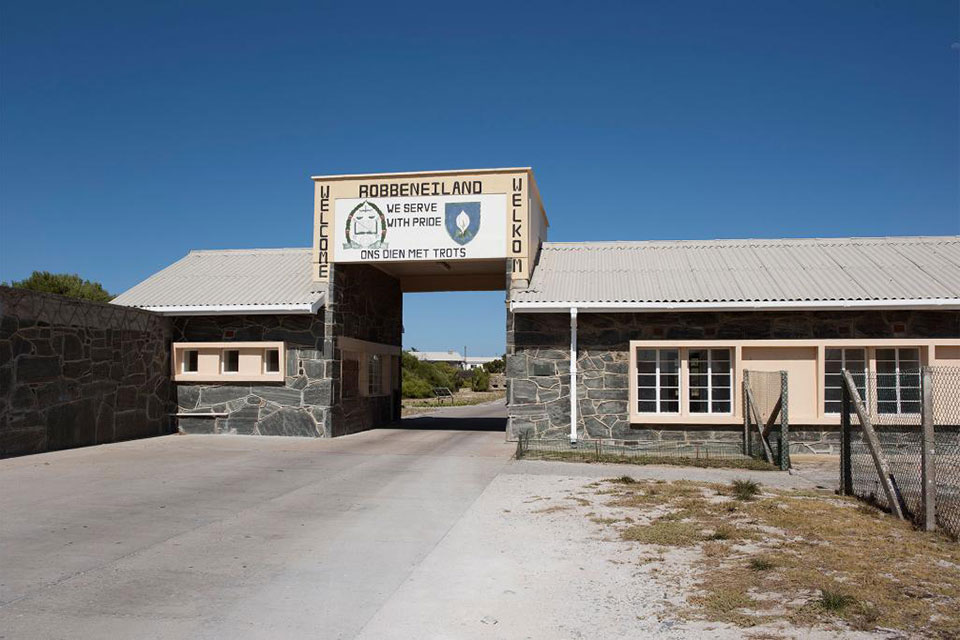
The tour on Robben Island takes visitors on a journey through its rich history, encompassing various significant sites. Once you arrive on the island, you will be guided to board buses that will transport you to different heritage landmarks, ensuring an immersive experience in this historical setting.
During the tour, visitors have the opportunity to explore the island’s graveyard, where the final resting place of former political prisoners can be found. Additionally, you will visit the lime quarry, which holds great historical significance as the site where prisoners were forced to work.
The church and Robert Sobukwe’s house also feature prominently on the tour, providing further insights into the island’s past.
Aside from its role as a political prison, Robben Island had other purposes throughout its history. At various times, it served as a leper colony and an animal quarantine station. These additional aspects contribute to the island’s diverse historical tapestry.
Throughout the tour, knowledgeable guides who possess a deep understanding of the island’s history accompany visitors, offering insightful commentary along the way. You can expect to learn about the island’s significance and the struggles faced by those who were imprisoned there.
One of the most memorable parts of the tour is the final segment, which is led by an ex-prisoner. This unique experience allows visitors to listen to firsthand accounts and personal stories, gaining a deeper understanding of life on Robben Island during its time as a political prison.
Today, approximately 100 people live on Robben Island, contributing to its ongoing legacy and ensuring that its history is preserved.
Visiting Robben Island
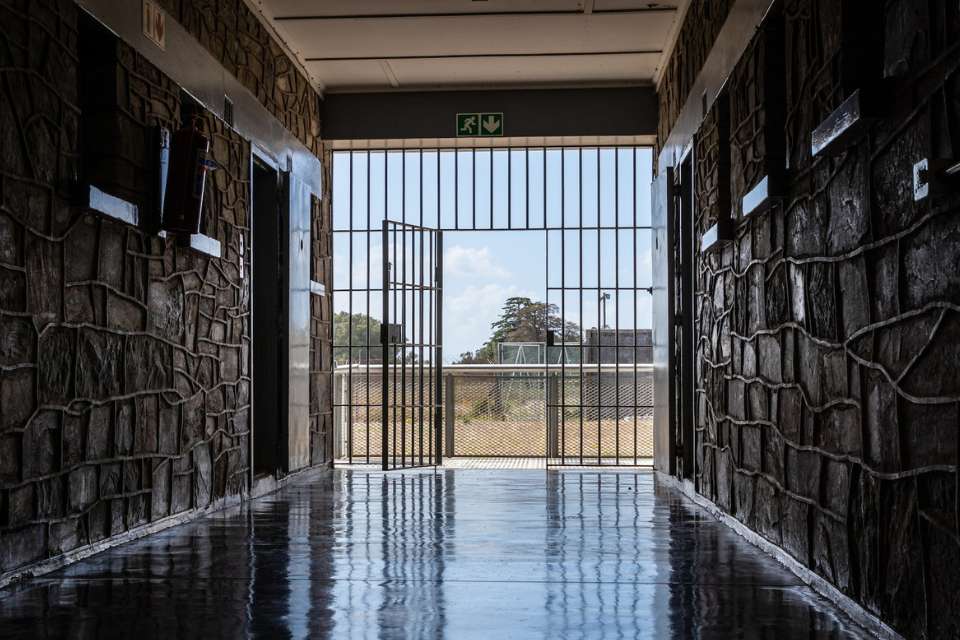
A visit to Robben Island offers the opportunity to experience the rich history of South Africa firsthand. The island holds great significance in our country’s journey towards racial equality and tolerance.
Many influential political leaders, including Nelson Mandela, were imprisoned on Robben Island, and their stories and experiences provide powerful insights into the struggle against apartheid.
When you visit Robben Island, you have the chance to immerse yourself in the history and see the impact of South Africa’s fight for freedom. Walking through the prison cells and hearing the stories of those who were held captive there allows us to better understand the history of our own country.
It is a humbling and thought-provoking experience that highlights the importance of the ongoing journey for racial equality and tolerance.
Whether you are a local or a visitor to South Africa, a visit to Robben Island is a must. It is a powerful reminder of the progress we have made and the challenges we have overcome.
It serves as a symbol of hope and resilience, and a testament to the strength of the human spirit. Experiencing history on Robben Island is a transformative experience that will stay with you long after your visit.
So why visit Robben Island? Because it allows us to honor the past, understand the present, and inspire a better future. It is a place of significance that reminds us of the ongoing journey towards racial equality and tolerance in South Africa and beyond.
Conclusion
Visiting Robben Island is an unforgettable experience that offers a unique and insightful glimpse into South Africa’s history and struggle for freedom. Located just 7.4 kilometers from Cape Town, Robben Island is a World Heritage Site of great historical and political importance.
During the 30-40 minute ferry ride from Cape Town, you will have time to reflect on the significance of the journey you are about to embark on.
Once on the island, you will be guided by knowledgeable tour guides who will take you to various heritage sites, providing you with a deeper understanding of the island’s past.
One of the highlights of the tour is the opportunity to listen to firsthand accounts from former prisoners, who share their personal experiences of life on Robben Island.
This personal touch adds an extra layer of authenticity to your visit, making it a truly immersive and educational experience.
Whether you are interested in South Africa’s history, its struggle for freedom, or simply want to learn more about the journey towards racial equality, a visit to Robben Island is a must. So, make sure to include this important destination on your itinerary when exploring Cape Town.
FAQ
How far is Robben Island from Cape Town?
Robben Island is located in Table Bay, about 7.4 kilometers from the nearest land and within sight of Cape Town.
How long is the boat ride to Robben Island?
The ferry ride from the Waterfront in Cape Town to Robben Island takes approximately 30-40 minutes, depending on sea conditions.
Can I visit Robben Island independently?
No, visiting Robben Island can only be done through an official tour. It is not possible to visit independently.
Where is Robben Island located?
Robben Island is located 11.6 kilometers from the mainland and can only be reached by ferry from the V&A Waterfront in Cape Town.
How far in advance do I need to book ahead?
It is recommended to book your tour to Robben Island in advance, especially during the peak season, as availability may be limited.
Where does the ferry for Robben Island depart from?
The ferry for Robben Island departs from the Nelson Mandela Gateway at the V&A Waterfront in Cape Town.
What is the tour itinerary on Robben Island?
Once on the island, visitors are directed to buses that take them to different heritage sites, including the graveyard, the lime quarry where prisoners worked, the church, and Robert Sobukwe’s house.
Do people live on Robben Island today?
Yes, there are approximately 100 people who currently live on Robben Island.
Has Robben Island had any other purposes?
Yes, Robben Island also served as a leper colony and an animal quarantine station at different times in its history.
What was the tour guide like?
The tour guides on Robben Island are knowledgeable about the island’s history and provide interesting commentary throughout the tour.
Would I meet any ex-prisoners?
The final segment of the tour is led by an ex-prisoner, giving visitors the opportunity to hear firsthand accounts of life on the island.
Why visit Robben Island?
A visit to Robben Island offers the opportunity to experience the rich history of South Africa firsthand and better understand the country’s journey towards racial equality and tolerance.
What is the significance of Robben Island?
Robben Island holds great significance in South Africa’s history. Many influential political leaders, including Nelson Mandela, were imprisoned on the island, and their stories and experiences provide insights into the struggle against apartheid.

